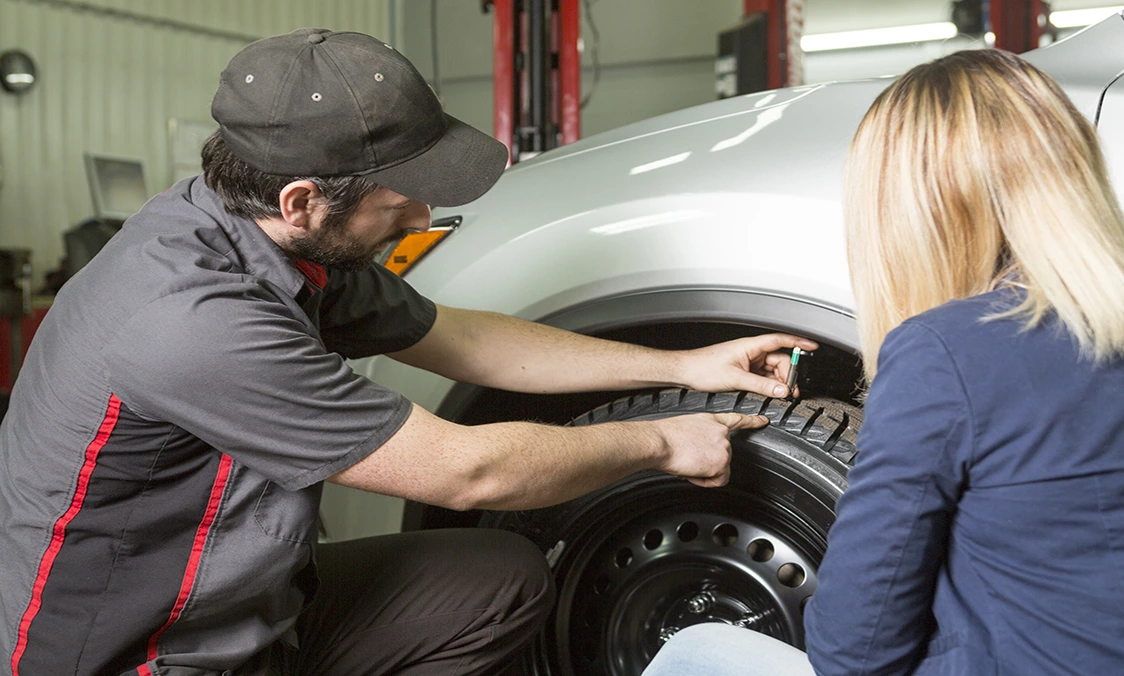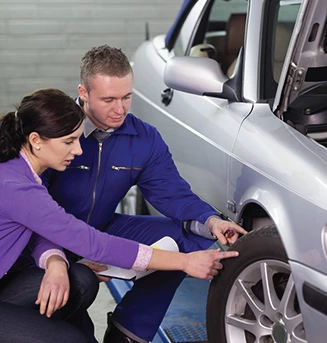The Truth about Tire Pressure (Tire Inflation)
August 14, 2022
Most light vehicles (under 10,000 pounds/4,500 kg) in North America sold from 2008 model year on have a feature that many people are confused about. It's the tire pressure monitoring system (TPMS). You may have some experience with it yourself if you own a newer vehicle. Vehicles with TPMS have sensors in each tire that are supposed to warn the driver when tire pressure gets dangerously low. That's important because tires that are significantly under-inflated can cause very serious accidents.
Unfortunately, many drivers think the TPMS does all the work keeping track of tire pressure. To them, as long as the warning light or gauge isn’t giving a warning, the tires must have the proper amount of air pressure in them. That's not the case.
Tire pressure monitoring systems aren't all created equal. Some give you a digital readout of the pressures in each individual tire. But many simply have a warning light that looks like the cross section of a tire with an exclamation point in the middle. If you don't know what it is, it's because it's not instantly recognizable as a tire. In fact, one company that makes TPMS, Schrader Performance Sensors, surveyed drivers. Their study showed that more than 40 percent of drivers didn't know that that warning light was.
One out of 5 of the drivers who did know what the light was only looked at their tires after the light came on to see if they could see any that needed air; they never checked them with a tire gauge or had someone else do it. Ten percent of them didn't do anything when the light came on.
In most vehicles with TPMS, the warning comes on only when the tires are more than 25% underinflated. The American Automobile Association says that's under the pressure you need for safe vehicle operation.
The bottom line is once a month you should make sure your tires are inflated to the manufacturer's recommendations. That means each tire should be measured with an accurate, external tire gauge. To be confident you are getting a correct reading, take your vehicle to a reputable service facility where their equipment is calibrated and they know what they're doing.
Severely underinflated tires can contribute to an accident that kills or severely injures people. The idea behind TPMS is well intended, but the system was never meant to replace regular inflation measurements and maintenance. Periodically have your tires checked for proper inflation.
TLC Custom Exhaust Brakes & Tires
1735 N Main St
Royal Oak, Michigan 48067
248-541-8300
http://www.tlcautocareroyaloak.com
Need Service?
More articles from TLC Auto Care

A Bright Spark (Ignition Coil Replacement)
May 11, 2025
Ever wonder how your vehicles engine is able to take the 12-volts from its battery and ramp that up to as high as the tens of thousands of volts it takes to fire its spark plugs? The secret is something called an ignition coil. Most newer vehicles have an ignition coil at each cylinder, but olde... More

The Engine Gets a Boost (Turbocharged Engine Maintenance)
May 4, 2025
If someone told you that your vehicle could have the same power but with a smaller engine, wouldn't that sound like great idea? Just think, a smaller engine would save you money at the gas station and you'd still get the same horsepower. The technology to do just that has been around for a long t... More

The Byte Stuff (Your Vehicle's Computers)
April 27, 2025
Nobody has to tell you that computers are a part of so many things in our lives. Smartphones, kitchen appliances, vacuum cleaners, televisions. You name itit has a computer in it. And your vehicle is no exception. The earliest cars relied on the technology of their time, and there was no such ... More










